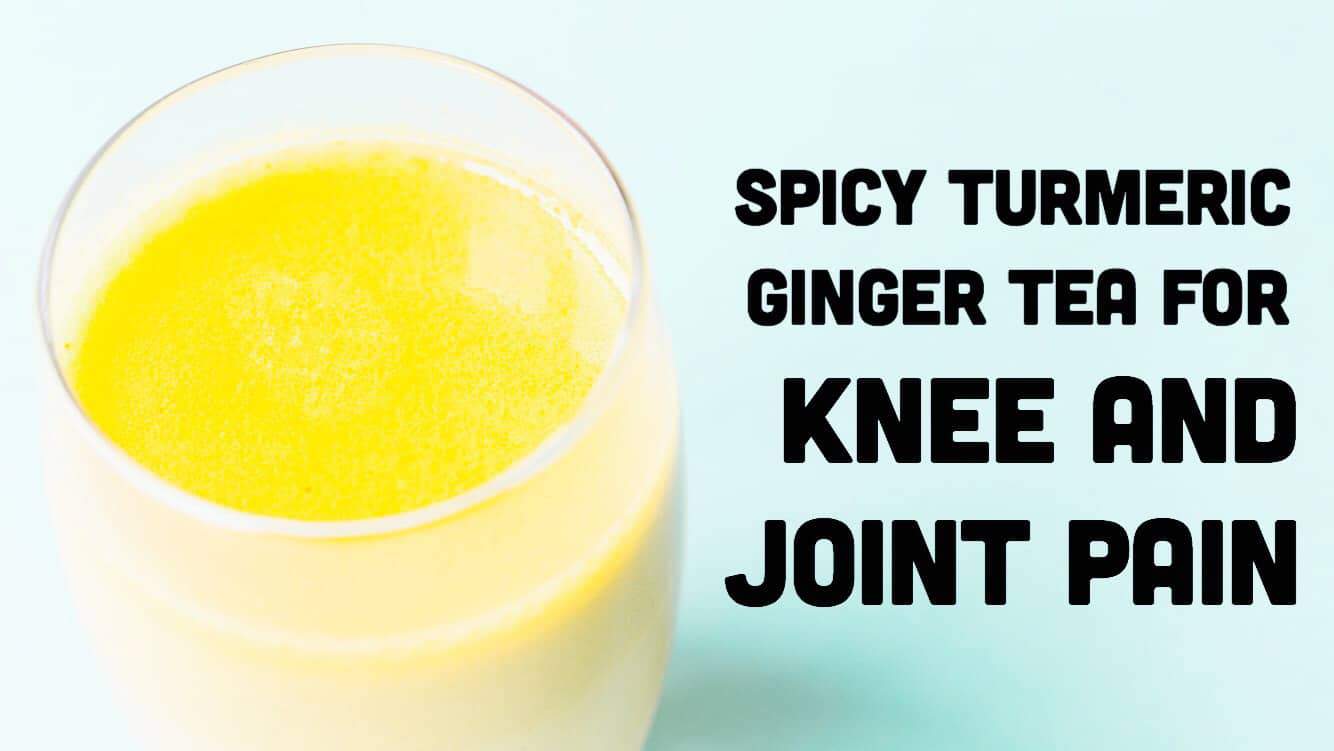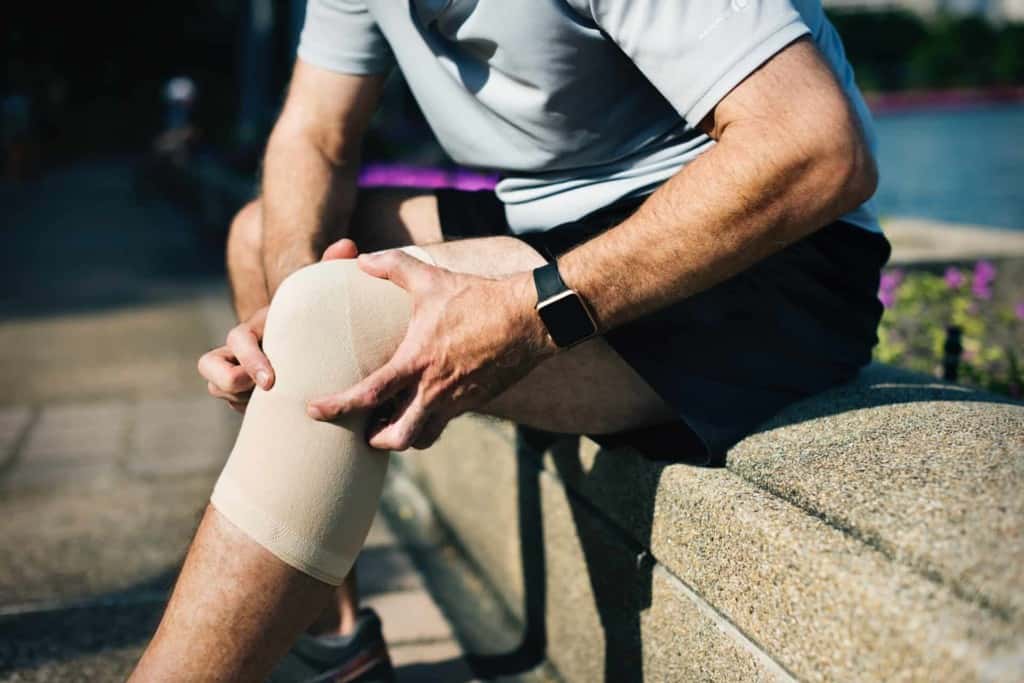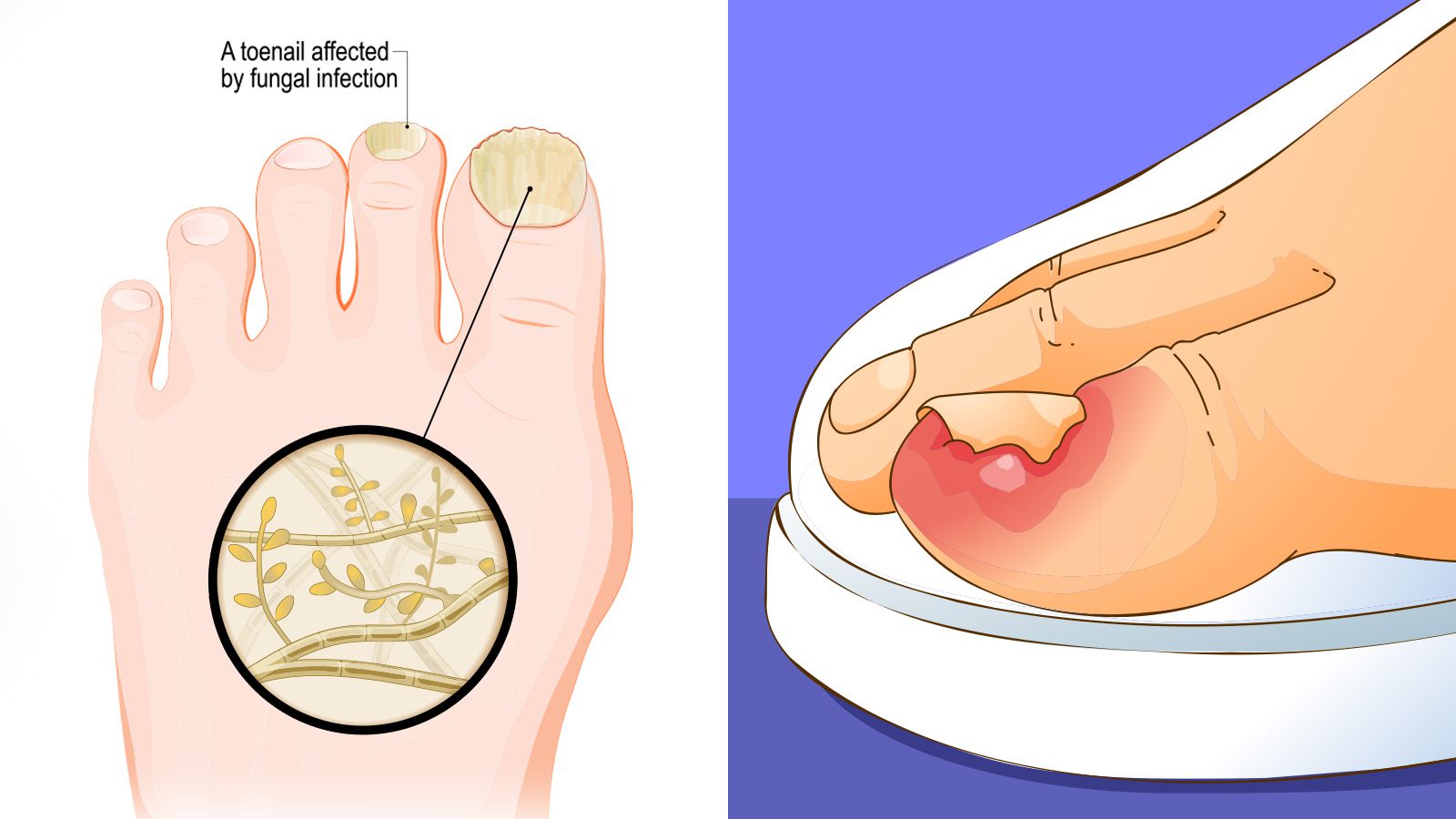If you were to Google “turmeric pain benefits” or “turmeric pain benefits study,” you’d be astonished at what comes back. Study after study, institution after institution, confirms and reconfirms the astounding health benefits of turmeric or curcumin.
“Knee pain on the whole is a very common condition and frequent problem presenting to general practitioners. The overall prevalence of knee pain in the population is approximately 19%.” – Virtual Medical Centre
And here’s another one:
“Several recent studies show that turmeric/curcumin has anti-inflammatory properties and modifies immune system responses…A 2010 clinical trial found that a turmeric supplement (provided) long-term improvement in pain and function in 100 patients with knee OA (osteoarthritis). – The Arthritis Foundation
Although ginger is not as widely recognized within the medical community, it too has pain-relieving and anti-inflammatory properties. As a side note, ginger is also known to treat acute conditions such as motion sickness, nausea, and digestive problems. Ginger is generally accepted as one of the healthiest foods in existence due to its nutritional density.
Combining these two natural ingredients into a single recipe yields a potent pain-relieving mix. While there are plenty of recipes that provide some pain relief measure, few, if any, are as versatile and powerful as turmeric and ginger tea.
In this article, we discuss how to make this simple and tasty beverage. In as little as 10 minutes, you can be enjoying this wonderful concoction. We’ve supplemented the recipe with some necessary information, including recommended dosages and potential prescription drug interactions (please be sure to read!)
Benefits of turmeric
Turmeric has so many great benefits. Here’s a list of some of the best benefits you get from drinking tea made with turmeric. Some benefits include relief from the following conditions:
- Heartburn
- Stomach ache
- Diarrhea
- Gassiness
- Liver problems
- IBS symptoms
- Lowers cholesterol
- Inflammation
- Fatigue
- Headaches
- Bronchitis
- Respiratory infections
- Fibromyalgia
- Diabetes
- UTI
- Kidney problems
What causes inflammation in your joints and knees?
Drinking turmeric tea is a great way to fight the inflammation in your body. Inflammation is part of your body’s natural defense system to fight off an infection or injury. But inflammation can damage your healthy tissues and joints, causing you pain. If you suffer from chronic pain that lasts for months or years, it can be debilitating. Researchers are doing studies on the underlying causes of inflammation and inflammatory diseases. Your inflammation can be due to various things, but here are some possible sources for you to consider. Your inflammation may be caused by
- Insect bites like ticks or mosquitos
- Chemicals in the environment
- Bacteria, viruses, or fungus
Your doctor can do tests to diagnose if you have an inflammatory disease properly. They may not know the cause, but once you understand that you have a disease, it’s easier to know how to treat it.
What diseases cause inflammation?
Certain diseases are known for producing chronic inflammation. Diseases that cause inflammation include
- Heart disease, high blood pressure
- IBS
- Autoimmune diseases
- Asthma
- Depression
- Type 2 diabetes
- Parkinson’s disease
- Cancer
If you suffer from chronic knee and joint pain, it could mean that you are in the early stages of one of these diseases. Talk to your doctor about your symptoms and what could be causing your inflammation pain. They can do tests to find out exactly what’s going on.
How does the knee work?
Your knee joints are the strongest in your body. Your knees support your leg movements from your thigh downward. You need your knees for movement-everything from walking, running, sitting, and standing-depends upon your knees. Your knee joints include your femur, shinbone or tibia, your kneecap, tendons, ligaments, and cartilage. Normal knees should work smoothly without pain. As you age, every part of your knee is susceptible to injury and damage. For this reason, it’s important to take good care of your knees.
What are some common knee problems that cause inflammation?
Osteoarthritis
This type of arthritis is common in the knees. The degeneration of the cartilage causes it in your knee joints as it wears out. It’s common in middle-aged people who have been active in sports all their lives. Stress on your knees, repeated movement, or injury contributes to osteoarthritis. This stress causes inflammation and destroys cartilage.
Tendonitis
Tendonitis is an inflammation of tendons due to overuse because of physical activities like jogging, biking, or jumping. It’s often associated with sports injuries that strain your tendons. Rest your knees if you’re suffering from tendonitis. You can also take Ibuprofen and ice your knees when you exercise.
Torn cartilage
Torn cartilage in the menisci, the part of your knee that acts as a shock absorber and gives you stability, is a common knee problem. These tears sometimes need to be corrected by surgery. Wear a knee brace if you’re prone to tears in your knee. A knee brace can protect your knees from more damage.
Sprained knee
Another common knee ailment is a sprain. Sprained ligaments or muscles around your knee occur from getting hit in the knee or twisting your knee. Your doctor can x-ray your knee to make sure there aren’t any tears. Once they’ve diagnosed the problem as a sprain, you can treat it by following these four practices, remembering it by the RICE acronym.
- R-Rest your knee
- I-Ice your knee
- C-Compression-wear a knee brace
- Elevate your knee when sitting down.
How To Make Spicy Turmeric Ginger Tea For Knee And Joint Pain
Here’s what you’ll need:
- One cup of water
- ¼ teaspoon of (preferably organic) ground turmeric
- ¼ teaspoon of (again, preferably organic) ground ginger
- Up to a tablespoon of honey to provide some sweetness (optional)
- A strainer
Instructions
- Bring the cup of water to a boil
- Add the ¼ teaspoon of turmeric and ¼ teaspoon of ginger
- Reduce the heat to a simmer
- Let cool for 10-15 minutes
- Strain mixture to eliminate hardened compounds
- Sip, and add honey to preferred taste
Additional notes
As many of us are quite busy, some may prefer the convenience of a supplement. Supplements are ubiquitous and sold at most whole food and nutrition retailers.
Both ginger supplements and turmeric/curcumin supplements and are ordinarily sold individually. However, there are a few quality products that combine the two ingredients. Just make sure that you conduct the proper research when choosing the product.
Turmeric/curcumin supplements are very healthy, provided that the manufacturer adheres to sound production techniques.
As with any dietary supplement, turmeric should be consumed at recommended levels. This can be a bit confusing, as turmeric is produced in a variety of ways. The main five turmeric products are:
- Fluid extract
- Fresh turmeric root
- Turmeric supplement with a certain percentage or ratio of curcumin
- Tincture
- Turmeric dried root powder.
Recommended Dosage
Per the University of Maryland Medical Center (UMMC), the permissible dosage of each type of turmeric product are as follows (as a ratio of turmeric to curcumin for two):
- Fluid extract (1:1) 30 to 90 drops a day
- Dried, powdered root: 1 to 3 grams per day
- Standardized curcumin powder (1:1): 400 to 600 milligrams, 3 times daily
- Cut root: 1.5 to 3 grams per day
- Tincture (1:2): 15 to 30 drops, 4 times per day
Related article: Miracle Drink – NO PAIN In 1 Week (Joints, Legs & Back)
UMMC adds: “Turmeric and curcumin supplements are considered safe when taken at the recommended doses. However, taking large amounts of turmeric for long periods of time may cause stomach upset and, in extreme cases, ulcers. People who have gallstones or obstruction of the bile passages should talk to their doctor before taking turmeric.
We also want to share a few additional ways you can make curcumin tea.
Other turmeric tea recipes to fight your joint and knee pains
Turmeric tea isn’t difficult to make. You can use fresh grated turmeric or ground turmeric. If you choose freshly grated turmeric for these recipes, add an extra amount since ground turmeric is stronger than fresh turmeric.
Milky turmeric tea
This tea is sometimes called golden milk because of its rich yellowish gold color.
Ingredients:
- 1/2 to 1 teaspoon of ground turmeric powder (adjust to taste)
- A pinch of ground black pepper (this is supposed to help the absorption of the turmeric, so don’t leave it out)
- 2 cups almond milk or coconut milk
- 1 teaspoon almond oil or ghee
- A teaspoon of honey or maple syrup for sweetness (adjust to taste)
Directions:
- Mix all the ingredients. Pour into a saucepan.
- Over medium heat, let the tea simmer for 10 minutes. Don’t boil it.
- Remove from heat and cool slightly. Serve.
Turmeric and ginger milk tea
Ingredients:
- 1 cup of coconut milk or almond milk
- 1 teaspoon coconut oil
- 1/2 to 1 teaspoon ground turmeric
- ¼ inch ground ginger root, grated
- 1/4 to 1/2 teaspoon of honey (adjust to taste)
Directions:
- Blend all the ingredients.
- Put into a saucepan and heat for 10 to 15 minutes.
- Let simmer, but don’t let it boil.
- Remove from the heat and cool for a few minutes. Serve.
Lemon ginger and turmeric tea
Ingredients:
- 3 cups of water
- 1/2 to 1 teaspoon of ground turmeric
- 1/ 2 teaspoon of ground ginger
- 1 lemon, juiced (some people like to grate the lemon rind and put it into the recipe)
- 1 to 2 teaspoons of real maple syrup (optional). You can use honey if preferred
- 1 pinch of cayenne pepper or black pepper (these help the absorption of the turmeric)
Directions:
- In a small pan, add water, ground turmeric, ground ginger, lemon (and rind if preferred), maple syrup, and cayenne pepper.
- Simmer over medium heat, but don’t boil. Allow the tea to simmer for 10 minutes, but don’t boil.
- Remove from heat and serve.
Special Note: Drug interactions with curcumin
Though a natural substance, turmeric/curcumin can interact with certain medications. Individuals prescribed the following drugs should consult a physician before taking turmeric/curcumin in any form:
- Blood-thinning medications: Turmeric can exacerbate blood-thinning drugs’ effects, making the patient more prone to bleeding. Common blood thinners include Coumadin (generic: Warfarin), Plavix (generic: Clopidogrel), and aspirin.
- Diabetes medications: Turmeric can enhance diabetes drugs’ effects and increase the risk of low blood sugar (hypoglycemia).
- Stomach acid medications: Turmeric can increase acid levels within the stomach when taken with stomach acid meds. Common medications include: Nexium (generic: Esomeprazole), Pepcid (generic: Famotidine), Prevacid (generic: Lansoprazole), Prilosec (generic: Omeprazole), Tagamet (generic: Cimetidine), and Zantac (generic: Ranitidine).
How can you take good care of your knees and joints?
Your joints need special care to stay strong and healthy. Follow these practices to keep your joints healthy and pain-free.
Keep your weight at a healthy level.
Being overweight puts stress on your knee joints, your back, and your hips. Researchers say that every extra pound you carry puts an extra four pounds of pressure on your joints. Maintaining a healthy weight can keep your joints healthy and strong.
Move
Stay active even if you feel stiff in your joints. Do exercises with low stress on your knees, such as swimming, biking, stretching, or yoga. Start slow and work your way up. If you start too quickly, you can damage your knees or joints. Do yoga or stretching to keep your joints limber.
Healthy diet
Eat a diet rich in vegetables, fruits, lean meats, nuts, and seeds. Don’t skip the fat. Cook with olive oil, coconut oil, or almond oil in your cooking. Eat whole grains. These add fiber to your diet.
Wear good shoes
When you jog or walk, be sure to wear good supportive shoes that have a proper arch. Good running or walking shoes must be replaced every four to six months because they wear down quickly.
Improve your posture
Good posture is often overlooked as a natural way to protect and maintain healthy joints. When you have poor posture, you put undue pressure on your joints and muscles. Pay attention to your posture when you’re working out, standing, or sitting around the house. Don’t slouch. Stand straight, allowing your spine to be in proper alignment. Visit a chiropractor to help your posture improve. This natural treatment not only eliminates your back pain but can protect your joints from injury.
Final thoughts on turmeric tea and making other changes for healthier knees
Your knees and joints keep you moving all day long. Taking good care of them is essential to prevent injury or damage over the years. Eating well, maintaining a healthy weight, having good posture, and exercising to stay strong contribute to healthy knees and joints. It’s the little things that add up, so start caring for your joints and knees early on, so you’ll be able to keep doing all the things you love free from pain for many years.

















